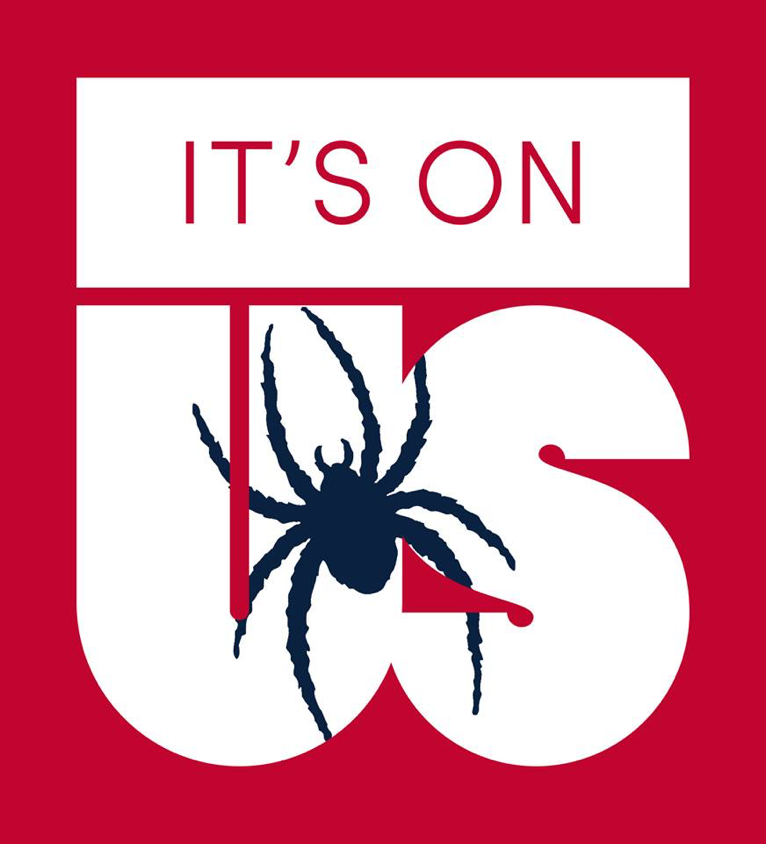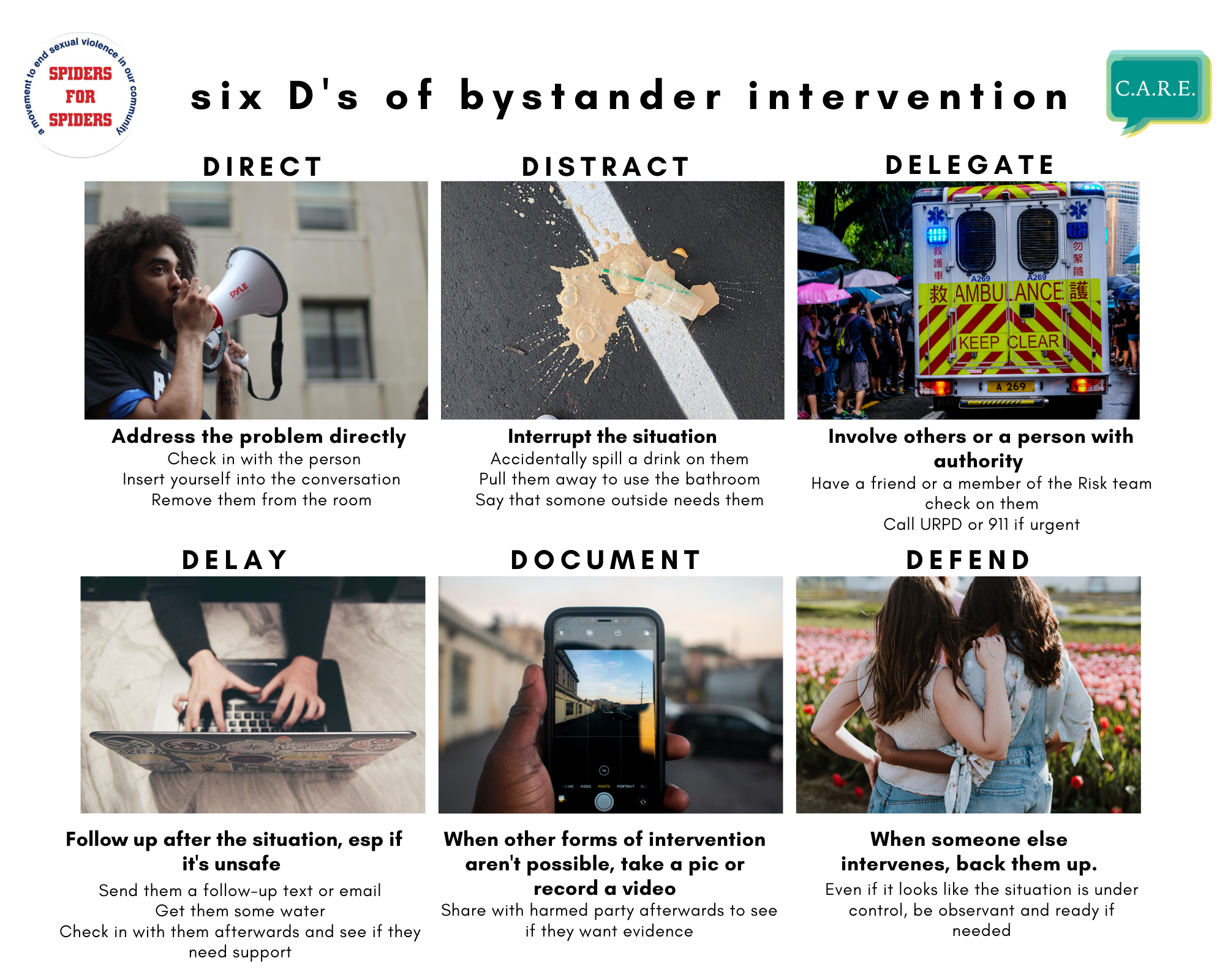Bystander Intervention

At University of Richmond, we're active bystanders who have each others' backs, take care of one another, and are accountable to our Spider family. We know that violence against one person impacts all of us, and we all have a responsibility to create a culture where violence no longer occurs.
Being an active bystander involves:
- Be observant - recognize behaviors that might distract or inhibit you from being able to look out for your friends.
- Recognize problematic situations - trust your spidey sense! If it seems off, it probably is.
- Assume responsibility - if not you, then who? The risk of checking in or intervening is relatively low, but the risk of not can be extremely high.
- Determine how to help - direct, distract, delegate, delay, defend, document
- Take action!
Check out examples of the 6 D's of bystander intervention below!

-
Direct.
Directly stating what you observe or checking in with someone is what we often think of when we think of intervention. For example:
- "That’s offensive."
- "They’re too drunk to consent tonight."
- "It’s not cool to joke about rape."
Keep in mind being direct doesn’t have to be confrontational or "calling someone out," though.
- "Are you doing ok? I haven’t seen you in class lately."
- "I overheard you yelling on the phone with your partner, is everything ok?"
- "Some people might consider what you said offensive - I’m letting you know because I know that probably wasn’t your intent."
- "I’m here for you if and when you want to talk."
-
Distract.
Create a distraction to move the energy away from a potentially problematic situation. The point of a distraction might be to prevent a situation from escalating or creating space to check in with someone privately.
- Strike up a random conversation. "Don’t I know you from somewhere? You look so familiar! Have we had a class together?"
- Accidentally spill your drink on someone (unless you fear this will escalate the situation).
- Ask to borrow their phone or if they can give you directions.
- Tell people you heard the cops are on their way or you think cars are getting towed outside a party.
-
Delegate.
Enlist the help of others. This can be someone in a position of authority, but it doesn’t have to be. For example:
- Finding someone’s friends and sharing your concerns.
- Talking with an RA, coach, advisor, dean, professor, staff member, or URPD.
- Assigning tasks to your friends or others who are witnessing the situation.
- Finding a member of the Risk team to help.
-
Delay.
Intervention can happen before, during, or after a situation. It’s ok for our intervention to be delayed, especially if it is unsafe to intervene in the moment. You can:
- Send a follow-up text or email and share your concerns.
- Ask them what you can do to support them.
- Believe them and their experiences, and offer resources and support.
-
Document.
If other forms of intervention aren’t possible, you can record the situation by taking a picture or video. If possible, make sure you have consent of the harmed party before sharing this documentation. Or, you might record a friend’s problematic behavior in order to address it with them later.
-
Defend.
Sometimes it’s hard to be the courageous individual to intervene in a problematic situation. If you see a fellow Spider stepping in, back them up. Position yourself close to them so they know they have support. Piggyback off of their intervention. Even if it looks like the situation is under control, be observant and ready if needed.